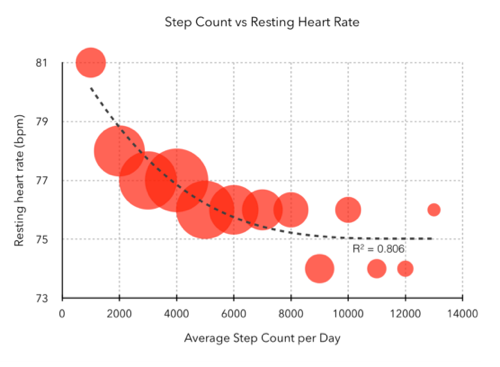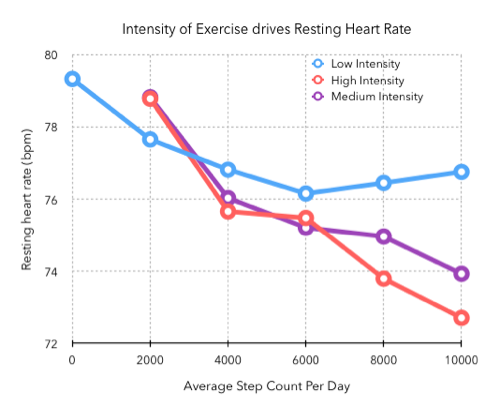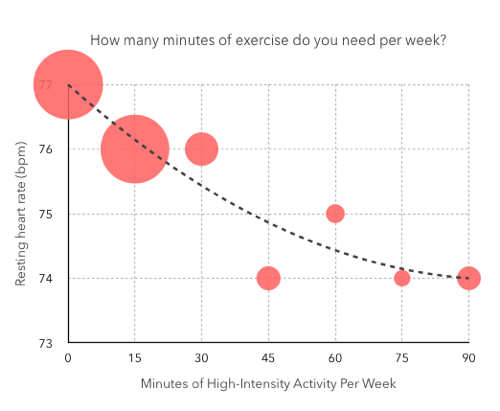Walking to Better Health
You may have heard that you should walk at least 10,000 steps per day, for your health. How good is that advice? The software developers at cardiogram have developed an app that tracks your heart rate, using your Apple Watch. They decided to combine the data from the Apple Watch's heart beat sensor with the data from the iPhone's step counter, to see how walking distance affects your resting heart rate.
I'm not sure how scientifically rigorous these results are, but they did come up with some interesting correlations.
In cardiovascular terms, the drop in heart rate from 1000 steps/day to 2000 steps/day is significant: a full 3 bpm decrease. And as step count increases, resting heart rate steadily drops—until you reach about 5000 steps per day. After that—6000, 7000, even up to 10,000 steps—the curve flattens.
Even if you get 10,000 steps per day, if your heart rate doesn’t go over 130 bpm, there’s not much impact on your resting heart rate. In contrast, even 4000 steps / day of high intensity exercise delivers a benefit: about a 4 bpm absolute drop in resting bpm, which doubles to 8 bpm at 10,000 steps / day.
Even 45 minutes per week of high intensity activity (heart rate >= 150bpm) placed participants in the lowest tier of resting heart rate.
I like this kind of analysis because it's actionable. I've been making some, small, effort to walk each day. I have a goal of 5,000 steps per day. But I've been skeptical of whether or not it actually matters, if it's just a few steps here and there. According to these numbers, it doesn't. I'm just fooling myself.
I can use these numbers to make a new goal. I want to start taking high-intensity walks 2-3 times a week. I've already been monitoring my heart rate. It stays around 90 beats per minute, most days. My initial goal is to lower that to 80 bpm. If that happens, I'll set a new goal.
This entry was tagged. Apple Healthy Living Weight


